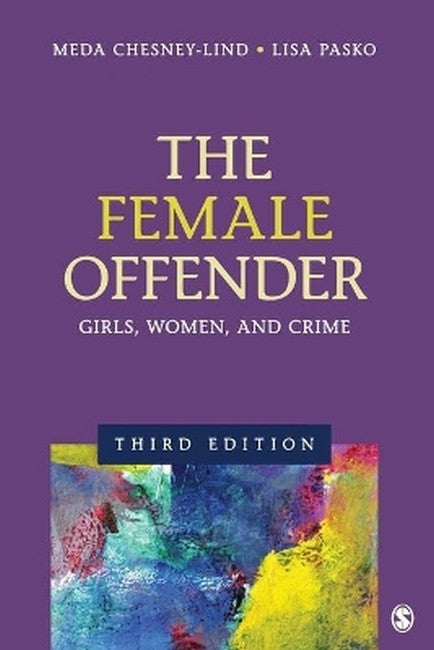Meda Chesney-Lind, Ph.D. is Professor Emerita of Women's Studies at the University of Hawaii. Nationally recognized for her work on women and crime, her testimony before Congress resulted in national support of gender responsive programming for girls in the juvenile justice system. Her recent publications include Policing Women's Bodies: Law, Crime, Sexuality, and Reproduction and the "Global War on Girls? Policing Girls' Sexuality and Criminalizing their Victimization (with Alida Merlo). Her earlier book on girls' use of violence, Fighting for Girls (co-edited with Nikki Jones), won an award from the National Council on Crime and Delinquency for "focusing America's attention on the complex problems of the criminal and juvenile justice systems." In 2013, the Western Society of Criminology named an award after her honoring "significant contributions to the fields of gender, crime and justice" and made her the inaugural recipient. In 2017, she was been elected President of the American Society of Criminology; she is currently serving as past President of the Society. Lisa Pasko, Assistant Professor, received her PhD from the University of Hawaii at Manoa. Lisa's primary research and teaching interests include criminology, punishment, sexualities/gender studies, as well as methodological issues in conducting studies of crime and deviance. Her dissertation examined juvenile delinquency and justice in Hawaii, with particular attention on the differential effects institutional policies and behaviors have on boys and girls. She is co-author of "The Female Offender" and other articles that explore issues of gender and delinquency. Dr. Pasko teaches courses on criminology, the female offender, men and masculinities, and crime and punishment. For the past ten years, she has been involved in criminal justice research. As project coordinator for the University of Hawaii Youth Gang Project, she evaluated numerous prevention and intervention programs for at-risk youth. Dr. Pasko has published in a variety of areas, including an ethnography of stripping, pathways predictors of juvenile justice involvement, a feminist analysis of restorative justice initiatives, and evaluations of two girl offender programs. Her current research is funded by the Colorado Division of Criminal Justice and examines the treatment of sexual minority girls in youth corrections.
Request Academic Copy
Please copy the ISBN for submitting review copy form
Description
Preface Acknowledgments 1. Introduction 2. Girls' Troubles and "Female Delinquency" 3. Girls, Gangs, and Violence 4. The Juvenile Justice System and Girls 5. Trends in Women's Crime 6. Sentencing Women to Prison: Equality Without Justice 7. Female Offenders, Community Supervision, and Evidence-Based Practices 8. Conclusion References Index About the Authors

